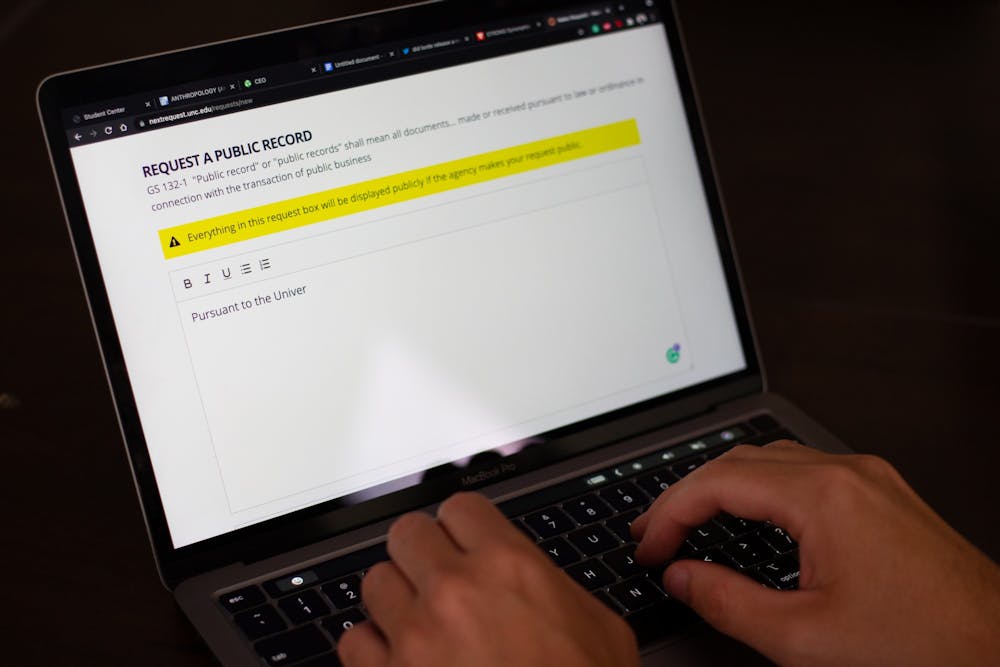As the story broke this summer that acclaimed journalist Nikole Hannah-Jones would not be granted tenure at UNC, reporters scrambled to file requests for public records.
An essential tool of journalistic investigations, the requests were filed by reporters across the state to ask the University for internal communications, meeting minutes and donor agreements.
But, they found their requests consistently delayed or denied — even after certain documents had already been leaked to the public.
“It’s frustrating … being a recent graduate of the Hussman School and understanding how important and how stressed it is that we need to be constantly asking different things of our governmental bodies,” INDY Week reporter Sara Pequeño said. “Despite that, not being able to get any actual information from the University that taught us those things — that's been something that's more disappointing than anything.”
Since the Hannah-Jones saga began in May, over 200 records requests have been filed through the University’s fulfillment software — NextRequest. It is difficult to determine how many of them are related to Hannah-Jones, because UNC redacts the names of personnel listed in these requests.
According to UNC Media Relations, the public records office has received 59 requests related to Hannah-Jones since April 27 and has provided more than 100 responsive documents consisting of tens of thousand of pages in response.
North Carolina’s public records law requires all branches of the state government to provide documents produced or received by state agencies unless they are specifically exempt from the statute. What makes the Hannah-Jones case difficult is that the state’s public records law includes a broad exemption for “personnel” matters — i.e. documents relating to hiring, firing or promotion of employees.
Reporters wanted to know who blocked the vote on tenure for Hannah-Jones, so they requested emails from top administration members at UNC — as well as members of the Board of Governors and Board of Trustees — that mentioned her name. The bulk of these requests were not returned until early August, nearly three months after the story first broke.
Other requests were flat out rejected. After the campus community learned that Walter Hussman, the Arkansas newspaper magnate and mega-donor to the eponymous Hussman School, had written to top administrators to caution them about Hannah-Jones’ hire, reporters sought out more on Hussman.



